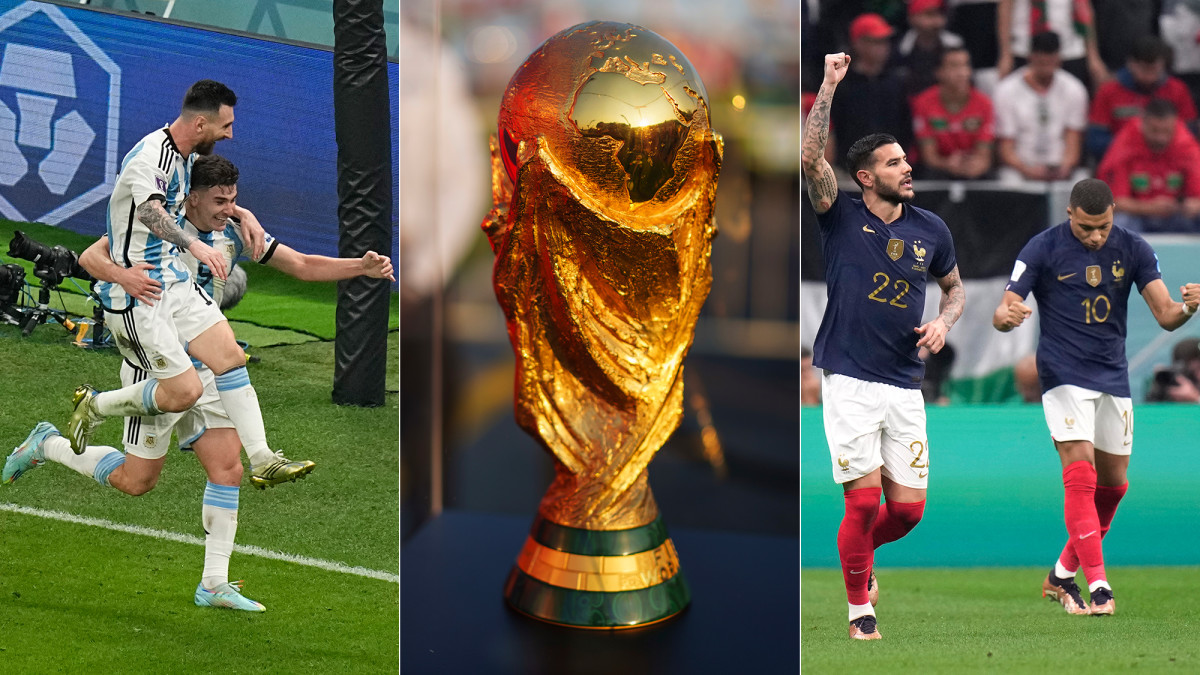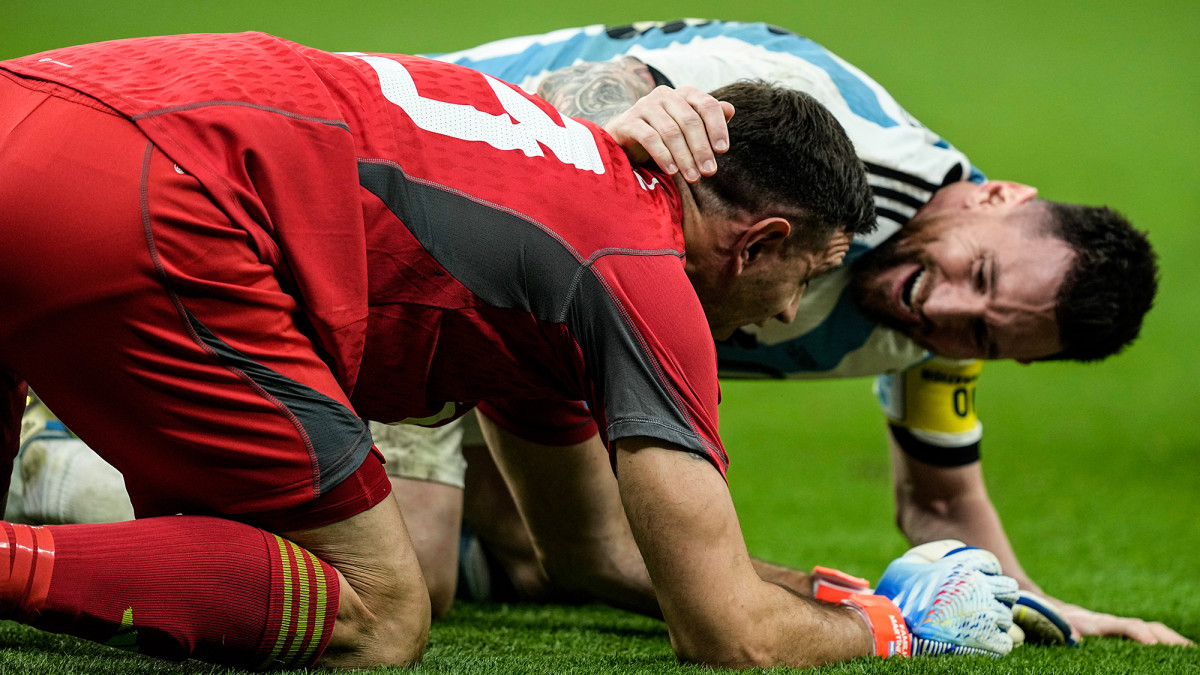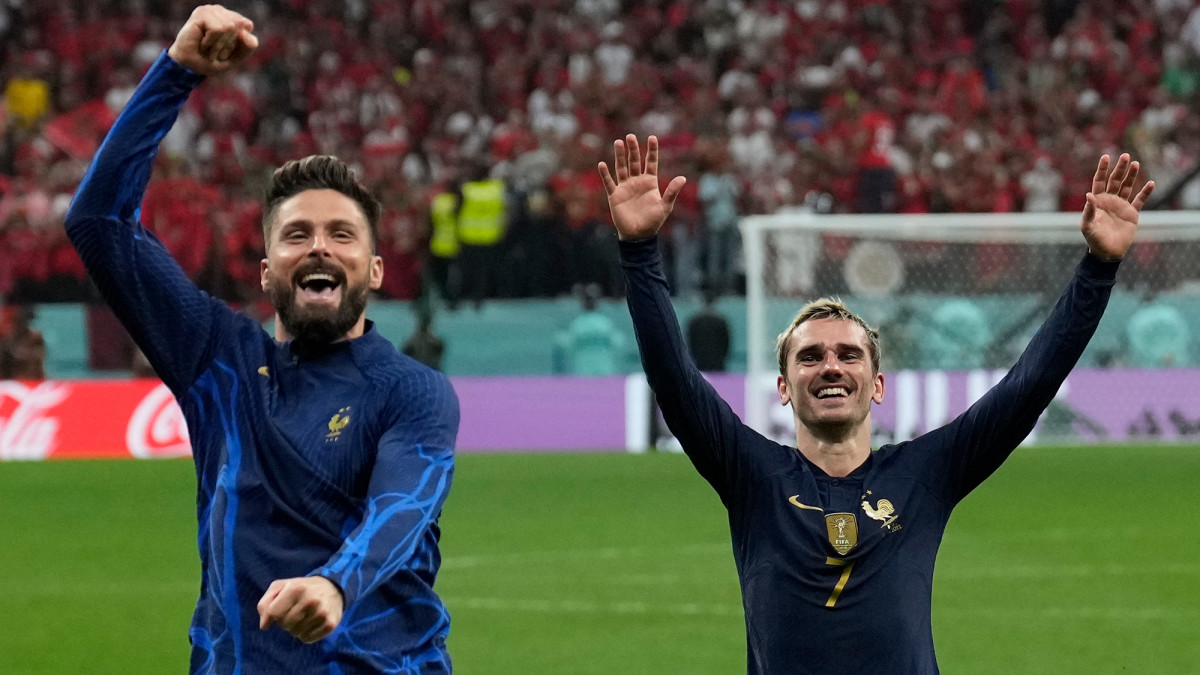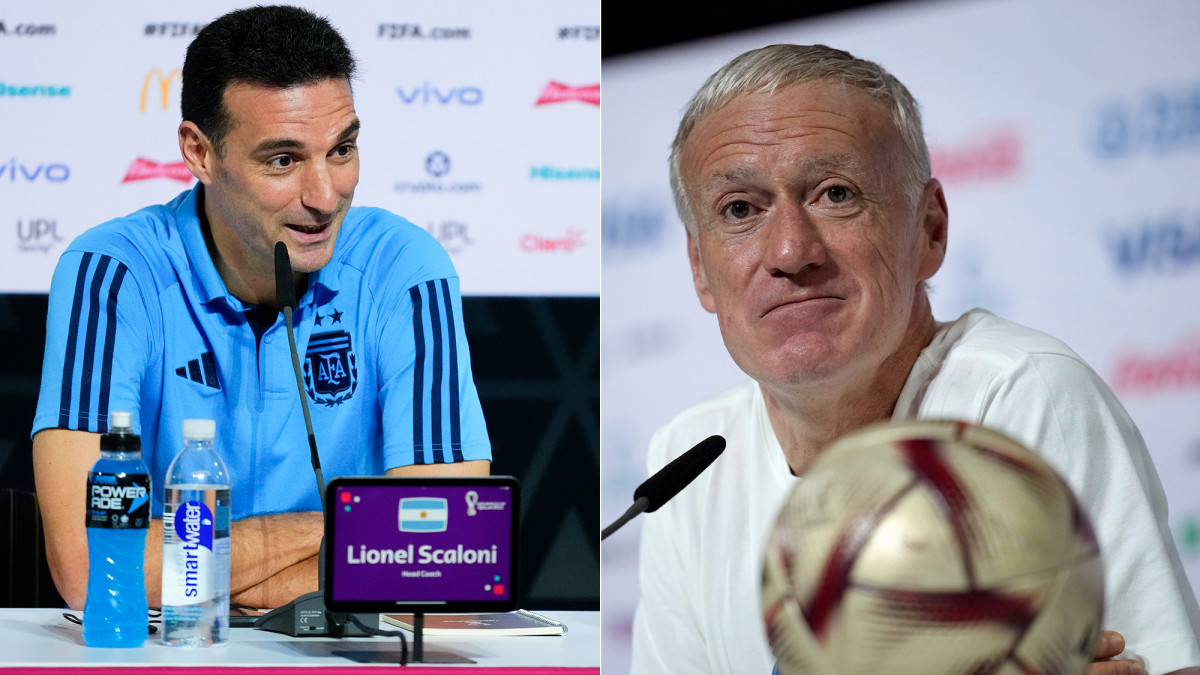The History, Hysteria and Deciding Factors Surrounding France, Argentina’s World Cup Final
AL RAYYAN, Qatar — The French national team, or the vast majority of it, slept in on Saturday. That’s according to coach Didier Deschamps and captain Hugo Lloris, who said they left their hotel in west Doha and traveled to the nearby Qatar National Convention Centre for a pre-World Cup final press conference, which began at 11:30 am local time, without seeing any colleagues.
“Everyone was in their rooms this morning when I got up for my breakfast, so I haven’t seen anyone,” Lloris said.
“I left quite early this morning from our camp, so they were all still asleep,” Deschamps added.
The questions about Les Bleus’ whereabouts weren’t frivolous. If the buildup to Sunday’s decider was ever going to be about anything or anyone other than Lionel Messi and Kylian Mbappé, who have dominated this World Cup, it was going to center on the French players suffering from injury and an unidentified virus with “flu-like symptoms,” according to the manager, that swept through the reigning champs’ camp.
Midfielder Adrien Rabiot and center back Dayot Upamecano missed France’s nail-biting semifinal win over Morocco on Wednesday. Winger Kinsgley Coman also was ill. France then confirmed center backs Raphaël Varane, the other starter, and reserve Ibrahima Konaté also caught the bug. Meanwhile, holding midfielder Aurélien Tchouaméni (thigh) and left back Théo Hernandez (knee) were dealing with injuries.
Nevertheless, Deschamps said Saturday morning that Les Bleus “remain calm and focused.”

And why wouldn’t they? This team has negotiated obstacle after obstacle, losing the likes of Karim Benzema, N’Golo Kanté, Paul Pogba, Presnel Kimpembe, Lucas Hernández and others to injury, while moving past some of the locker room drama and lapses in form that undermined previous French sides.
Deschamps compared the imperious Mbappé, who has five goals here in Qatar, to a “steam train” earlier in the tournament. But the same can be said of the French. Nothing derails them. So with each of the aforementioned players reportedly seen at training later Saturday—although with no word about their fitness to play—France seems to be at peace ahead of a historic opportunity to be the first men’s World Cup repeat winner in 60 years.
“These are things for which we weren’t necessarily prepared, but we remain focused, and of course we’re very excited about playing in a World Cup final,” Lloris said of the health issues. “We’re going to try and do our best in spite of the circumstances. I think thanks to the adrenaline and excitement we’ll feel, we’ll all be fit enough and ready to do everything we can to win this last battle.”
Now all they’ll have to overcome is an Argentina side riding a wave of momentum and hysteria that’s captured the planet’s attention. That wave will bathe Lusail Iconic Stadium in sky blue and white on Sunday, as most supporters here and everyone inside Argentina’s locker room unites to help Messi finally lift the World Cup. France has played in four of the past seven World Cup finals. It has the sport’s most prolific player development pipeline (there were 59 native Frenchman at this World Cup, enough for more than two full teams). In Mbappé, it has the player who will likely be the face of the sport for the next decade. And its first-choice side hasn’t lost a World Cup match since 2014. But the Messi mission will be France’s toughest test.

“People can say that the favorites are France. But we have the great advantage to have the greatest player of all time,” Argentina goalkeeper Emi Martínez said Saturday. “They are very skilled and we always like to hear that the opponent is the favorite, because we don’t feel superior or inferior to anyone. But as I always say, we have the greatest player of all time and with a good defense, we’ve got a good chance to achieve our goal.
“[Messi] gives so much energy to the whole squad. … He’s excited. He’s full of joy and this helps us very much.”
Both managers did their best to resist the two-man narrative surrounding Sunday’s game, during which each side will be trying to win its third World Cup. And of course, the questions about France’s issues were testament to the fact that many realize there are other men involved. But Messi and Mbappé have been so influential and decisive over the past month, and so critical to their respective team’s tactics, that it’s tough to imagine the result not hinging on them.
Each has five goals and each has the sort of dribbling skill and presence that draws defenders away from teammates. In addition, their relative positioning will impact how France and Argentina try to contain each other. Mbappé plays on the left and almost never presses or recovers to defend. The Argentine right is where Messi, who will set the all-time men’s World Cup appearances record at kickoff, is likely to be lurking. France struggled so much on that side against Morocco that Deschamps eventually shifted Mbappé to center forward, removing Olivier Giroud (four goals) and inserting Marcus Thuram.
The manager could afford to make that switch while protecting a lead. But another approach might be necessary to counter Messi on Sunday. Argentina has scored the opener in each of its six 2022 World Cup matches.
Meanwhile, Argentina will have to keep an eye fixed on Antoine Griezmann, who’s been tilting toward the French right as a sort of box-to-box playmaker and having a spectacular World Cup. If Mbappé and Messi are competing for the Golden Ball, it feels like Griezmann, with three assists and more key passes than anyone in the tournament, has at least one hand on bronze. Argentina lacks a similar weapon.

“I think that tomorrow's game will be more about a collective effort and not an individual effort. Mbappé is a top player obviously, but France also have a number of great players and they work together,” Argentina coach Lionel Scaloni said. “Messi is playing very well and we hope that we can win, but this will be a match between Argentina and France and there are many players that can decide it.”
One who won’t decide it is Benzema, the Ballon d’Or winner, about whom rumors have been swirling this week. The striker is training following the thigh injury that knocked him out of World Cup contention. But since he was never officially replaced on France’s 26-man roster, the possibility of a return to action technically exists.
Deschamps wasn’t interested in entertaining the thought on Saturday.
“You must know that I don't like to reply to this particular question,” Deschamps began after being asked about the Real Madrid star. ”I know that some players have been injured and Karim Benzema is, of course, one of those. Since the beginning of the World Cup, he’s been injured. [Defender] Lucas Hernandez got injured in the first game and from that point onward, I’ve got 24 players in my squad and you know who those players are.
“So I don’t think it’s fair to those players to ask about players who aren’t here,” Deschamps continued. “It’s not up to me to decide who comes to watch the game—former players or injured players. It’s really not up to me. I don’t know who’s coming to watch or support the team. I focus on my squad and the players at my disposal.”
The Benzema story won’t be the hurdle that trips up France. Deschamps's Les Bleus have proved their resilience time and again. Even when outplayed for significant stretches, like they were by England in the quarterfinal and Morocco in the semi, they have a knack for making the decisive play. They’re never rattled.
So the final feels like it will be a contest between that focus and Argentina’s fire and fury. Both France and Argentina escaped close calls to get here, and neither is likely to be remembered as a dominant, trend-setting champion. Rather, they’re outstanding examples of team building, tournament management and how to construct an interpersonally cohesive and tactically coherent side around a multi-generational star.

Scaloni was asked over and over Saturday about his emotions, his players’ emotions, his tears after beating Croatia, the scenes of celebrating Argentina fans around the world and the dreams of his countrymen. If there’s a secondary story to Argentina's tournament after Messi’s performance, it’s the building pressure and euphoria that’s increased with every game.
“We feel our fans very close in every match, in every stadium. It’s like we’re playing at home,” Martínez said.
“This is part of our culture—everything we live in Argentina,” Scaloni said. “Football is a sport and in Argentina, it is hard to understand, it is more than a sport for us. And people are happy and for us the fact that we were able to make them happy is wonderful and amazing.”
With eyes and hearts and history fixed upon it, Argentina will feel either invincible or anxious surrounded by that fervor. If it’s the latter, France will be ready.
"I often get that feeling. But I’m fine being alone. That doesn’t bother me,” Deschamps said when asked if he felt like Sunday’s final was France against the world.
“In the games that we’ve played, we’ve managed to come out victors. So I don’t have any particular worries or stress about tomorrow’s game. I think when you prepare for a game like this you need to keep your focus and remain composed. Of course in a final—a World Cup final especially—you have the match, but you also have a whole context behind it.
“I know that Argentina and many people around the world, and perhaps some French people as well, hope that Leo Messi will win the World Cup,” the two-time champion said. "But we’re going to do everything we can to achieve our objective.”
